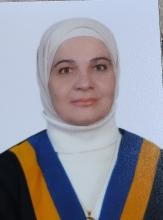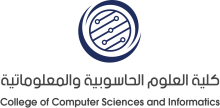Software has become an integral part of various fields in modern life. This has increased the levels of need for software production within a short period without decreasing its quality. In addition, specialized scientific methods should be used programmatically to deal with many security risks such as hacking software systems in order to access sensitive data that was described by specialists from the late 1960s as software crisis. Due to software crisis, a new specialization in computer sciences was developed and known now as software engineering that involves some methods and disciplines used in engineering specializations.
The university has opened a new bachelor program in software engineering at the faculty of Computer Science and Informatics in the academic year 2014-2015.
The software engineering program aims to build distinctive expertise in software development with high quality and efficiency and provide experienced professionals to lead the next generation and serve the academic and industrial fields.
Dr. Fatima Shannag
Acting Head of Software Engineering Department
About the Bachelor of Software Engineering
Software Engineering aims to provide students with the theoretical and practical skills related to developing and designing software with the highest quality and lowest cost to meet users’ needs. These theoretical and practical skills can be achieved through specific methodologies that include problem analysis, design, and implementation. It also provides writing, testing, installation and maintenance phases. Software engineering helps students to achieve software project management skills, understanding of software architecture, and developing standard software specifications.
Vision
Excellence in teaching, learning, scientific research, and community service in the software engineering field, locally and regionally.
Mission
Preparing qualified students with competencies in the software engineering field, having the applied and research knowledge and the skills to meet the requirements of the labor market and local community institutions according to quality criteria locally and internationally.
Software Engineering Major Bachelor's Program
Program Mission:
Preparing qualified students in the software engineering field to meet local and international standards and community requirements according to eLearning criteria.
Educational Program Objectives:
- Possess necessary skills of theoretical and applied knowledge in the field of Software Engineering.
- Gain professional competence and practice their profession with confidence and regional competitiveness with others.
- Continue lifelong learning and professional development amid future technological changes.
- Be active members of teamwork with professional and ethical responsibilities, and know the community’s needs.
Educational Program Outcomes:
Graduates of the program will have the ability to:
- Analyze a complex computing problem and to apply principles of computing and other relevant disciplines to identify solutions.
- Design, implement, and evaluate a computing-based solution to meet a given set of computing requirements in the context of the program’s discipline.
- Communicate effectively in a variety of professional contexts.
- Recognize professional responsibilities and make informed judgments in computing practice based on legal and ethical principles.
- Function effectively as a member or leader of a team engaged in activities appropriate to the program's discipline.
- Apply system development methodologies in conformance with software quality standards. [SE]
Program Educational Objectives (PEOs):
- Possess necessary skills of theoretical and applied knowledge in the field of Software Engineering.
- Gain professional competence and practice their profession with confidence and regional competitiveness with others.
- Continue lifelong learning and professional development amid future technological changes.
- Be active members of teamwork with professional and ethical responsibilities, and know the community’s needs.
Students Outcomes (SOs):
- Analyze a complex computing problem and to apply principles of computing and other relevant disciplines to identify solutions.
- Design, implement, and evaluate a computing-based solution to meet a given set of computing requirements in the context of the program’s discipline.
- Communicate effectively in a variety of professional contexts.
- Recognize professional responsibilities and make informed judgments in computing practice based on legal and ethical principles.
- Function effectively as a member or leader of a team engaged in activities appropriate to the program's discipline.
- Apply system development methodologies in conformance with software quality standards. [SE]
Learning Outcomes (LOs)
Upon completion of the program, the new student is expected to have:
- Application of fundamental knowledge
- Engineering analysis
- Engineering design
- Investigation
- Engineering practice
- Specialization and labor market commitment
- Management
- Communication
- Individual and team work
- Professional ethics
- Social responsibility
- Life-long learning
Mapping between PEOs and SOs:
| PEOs | SOs |
| PEO1 | 1,2 |
| PEO2 | 3,6 |
| PEO3 | 3,4 |
| PEO4 | 4,5 |





| Study Plan | Credit Hours | Major |
| 132 | Bachelor's of Software Engineering |
| Number | List of Research Papers | Abstract |
1 | Ahmad, F., Yahaya, J., Tarawneh, O., Baharom, F., & Abd Wahab, A. (2011). E-Commerce (B2C) Evaluation Practices: A Pilot Study on Jordanian Consumers’ Perspectives. In Proceedings of the 3rd International Conference on Computing and Informatics, ICOCI held on 8-9 June 2011 at Bandung, Indonesia (pp.413-418). Bandung, Indonesia: ICOCI. | Download |
2 | Kung-Kiu L., Taweel, F., & Cuong M. (2011). The W Model for Component-Based Software Development. EUROMICRO-SEAA: 47-50 | Download |
| Number | List of Research Papers | Abstract |
1 | Tarawneh, O., Ahmad, F., & Yahaya, J. (2012). Business to Consumer Evaluation Practices, Obstacles, and Factors: A Pilot Study from Consumers Perspectives on Jordanian Firm. International Journal of Scientific and Engineering Research, 3(1). | Download |
2 | Tarawneh, O., Ahmad, F., & Yahaya, J. (2012). B2C Quality Evaluation Factors from Jordanian Consumer Perspective. In Proceedings of Knowledge Management International Conference, KMICe held on 4-6 July 2012 at Johor Bahru, Malaysia (pp.246-250). Johor Bahru, Malaysia: KMICe. | Download |
3 | Nannan H., Taweel F., & et al. (2012). Component-based Design & Verification in X-MAN, ERTS 1-3, Toulouse, France | Download |
| Number | List of Research Papers | Abstract |
1 | Husain, O., Ahmad, F., & Yahaya, J. (2014). E-commerce Websites Evaluation Weight Mechanism Based on FAHP and Hardmard Methods. Journal of Information and Software Technology, 3(4). 27-34. | Download |
2 | Tarawneh, O., Ahmad, F., & Yahaya, J. (2014). E-commerce Website Evaluation Criteria from Malaysian Consumer Perspective. International Journal of Scientific and Engineering Research, 5(2). 15-21. | Download |
| Number | List of Research Papers | Abstract |
1 | Al Mashagba, Feras Fares, Al Mashagba, Eman Fares and Nassar, Mohammad Othman, (2015), Automatic Isolated-Word Arabic Sign Language Recognition System Based on Time Delay Neural Networks, Research Journal of Applied Sciences, Engineering and Technology. | Download |
| 2 | Saleh, Ashraf, Isamil, Roesnita Binti, Fabil, Norasikin Binti, (2015), Extension of PACMAD model for usability evaluation metrics using Goal Question Metrics (GQM) Approach, Journal of Theoretical and Applied Information Technology | Download |
| 3 | Nassar, Mohammad Othman, Al Mashagba, Feras Fares, Al Mashagba, Eman Fares, (2015), New Block Grouping Technique In Cover Image Selection, European Journal of Scientific Research | Download |
| 4 | Nassar, Mohammad Othman, Al Mashagba, Feras Fares, and others, (2015), Revised and Extended Mobile Commerce Technology Adaption Model, Research Journal of Applied Sciences, Engineering and Technology. | Download |
| 5 | Al Mashagba, Eman Fares, Al Mashagba, Feras Fares, and Nassar, Mohammad Othman, (2015), Simple and Efficient Marker-Based Approach in Human Gait Analysis Using Gaussian Mixture Mode, Australian Journal of Basic and Applied Sciences | Download |
| Number | List of Research Papers | Abstract |
1 | Al-Obeidallah, MG, Petridis, M., Kapetanakis, S., (2016), A Survey on Design Pattern Detection Approaches, International Journal of Software Engineering. CSC. | Download |
| 2 | Al-Hamami, Ahmed Alaa, Nassar, Mohammad Othman, (2016), Future Challenges in Android, INTERNATIONAL JOURNAL OF ADVANCED STUDIES IN COMPUTER SCIENCE AND ENGINEERING. | Download |
| 3 | Dorgham, Omar Hani Mohammad, Nassar, Mohammad Othman, (2016), Improved Round Robin Algorithm: Proposed Method to Apply SJF using Geometric Mean, INTERNATIONAL JOURNAL OF ADVANCED STUDIES IN COMPUTER SCIENCE AND ENGINEERING | Download |
| 4 | Tarawneh, Omar, Alshroof, Fayez, Nassar, Mohammad Othman, (2016), Jordanian Consumer Perspective for B2C E-commerce Website Evaluation Factors, Proceedings of the International Computer Sciences and Informatics Conference (ICSIC 2016) | Download |
| Number | List of Research Papers | Abstract |
1 | Abuaddous, H., Jali, MZ. & Basir, N.(2017). “Quantitative Metric for Ranking Web Accessibility Barriers Based On Their Severity”. Journal of Information and Communication Technology (ICT). Vol. 16. (1): June, p. 81–102 | Download |
2 | Otair, M., Al-Mansoori, K., Kanaan, R., & Fahmi, E., (2017). Image Noise Reduction using Median Filter and Avoid Biased Values: MF-ABV. The Second International Computer Sciences & Informatics Conference. | Download |
3 | Otair, M., Ziadeh, A., (2017). Simulation of Image Segmentation Algorithms Using Open Source Tools. The Second International Computer Sciences & Informatics Conference. | Download |
4 | Otair, M., Alawneh, S., (2017). Comparative Study between Interactive Segmentation and Photo Scissors Open Source Tools. The Second International Computer Sciences & Informatics Conference. | Download |
5 | Otair, M., Jebreel, D. (2017). Image Segmentation Tools: A Comparative Study. The Second International Computer Sciences & Informatics Conference. | Download |
6 | Otair, M., Alshaer, H., Alzwahrah, B., (2017). Arabic Text Classification Using Bayes Classifiers. The Second International Computer Sciences & Informatics Conference. | Download |
| 7 | Al-Obeidallah, MG, Petridis, M., Kapetanakis, S., (2017), A Structural Rule-Based Approach for Design Patterns Recovery, International Conference on Software Engineering Research, Management and Applications, Springer. | Download |
| 8 | Salahat, Sondos, Tahhan, Alaa and Nassar, Mohammad, (2017), Comparison between Google's android and Apple IOS Battery, 2ⁿᵈInternational Computer Sciences and Informatics Conference (ICSIC 2017). | Download |
| 9 | Youef, Tareq, Eyad, Omar and Nassar, Mohammad, (2017), Comparison between Software Cost Reduction Techniques ,2ⁿᵈInternational Computer Sciences and Informatics Conference (ICSIC 2017). | Download |
| 10 | Alqudah, Mohammad Nassar, and Mohammad, (2017), How to Reduce Facebook Cloning, 2ⁿᵈInternational Computer Sciences and Informatics Conference (ICSIC 2017). | Download |
| 11 | Qawaqzeh, Mohammed Khalaf and Nassar, Mohammad, (2017), Hybrid Image Compression Using DWT,DCT & LZW Encoding Techniques, 2ⁿᵈInternational Computer Sciences and Informatics Conference (ICSIC 2017). | Download |
| 12 | Hamdan, Nawal and Nassar, Mohammad, (2017), Improved the performance of Round Robin Scheduling algorithm, 2ⁿᵈInternational Computer Sciences and Informatics Conference (ICSIC 2017). | Download |
| 13 | Saleh, Ashraf Mousa, Ismail, Roesnita, and others, (2017), Measuring Usability: Importance Attributes for Mobile Applications, Advanced Science Letters. | Download |
| 14 | Al-Obeidallah, MG., Petridis, M., Kapetanakis, S., (2017), MLDA: A Multiple Levels Detection Approach for Design Patterns Recovery, Proceedings of the International Conference on Compute and Data Analysis, ACM. | Download |
| 15 | Jad, Duaa and Nassar, Mohammad, (2017), Mobile Operating Systems: Android and IOS weaknesses, 2ⁿᵈInternational Computer Sciences and Informatics Conference (ICSIC 2017). | Download |
| 16 | Muhaisen, Ziad and Nassar, Mohammad, (2017), Running Hadoop 2.7.3 single node cluster on Ubuntu 16.04 LST, 2ⁿᵈInternational Computer Sciences and Informatics Conference (ICSIC 2017). | Download |
| Number | List of Research Papers | Abstract |
1 | Abuaddous, H., Al Sokkar, A. & Abualodous, B., “The Impact of Knowledge Management on Organizational Performance”, International Journal of Advanced Computer Science and Applications (IJACSA). | Download |
| 2 | Al-Obeidallah, MG., Petridis, M., Kapetanakis, S., (2018), A Multiple Phases Approach for Design Patterns Recovery Based on Structural and Method Signature Features, International Journal of Software Innovation (IJSI), IGI Global, USA. | Download |
| Number | List of Research Papers | Abstract |
1 | Piras, Luca, Al-Obeidallah, Mohammed Ghazi, Praitano, Andrea, and others, (2019), DEFeND Architecture: A Privacy by Design Platform for GDPR Compliance, 16th International Conference on Trust and Privacy in Digital Business (TrustBus 2019), (Springer). | Download |
| 2 | Rawwash, Hassan, Saleh, Ashraf Musa, and others, (2019), Factors affecting Jordanian electronic banking services, Management Science Letters. | Download |
| 3 | Hamdan, Nawal, Al Shweiki, Jumana, Nassar, Mohammad, (2019), Improved performance for Round Robin Scheduling algorithm depends on burst time, International Journal of Science and Applied Information Technology | Download |
| Number | List of Research Papers | Abstract |
1 | Saleh, Ashraf Mousa, Al-Badareen, Anas Bassam, Enaizan, Odai, (2020), Automated User Experience Tool Development for Mobile Application, International Journal of Advanced Science and Technology | Download |
| 2 | Piras, Luca, Al-Obeidallah, Mohammed Ghazi, and others, (2020), DEFeND DSM: A Data Scope Management Service for Model-Based Privacy by Design GDPR Compliance, TrustBus 2020: Trust, Privacy and Security in Digital Business (Springer). | Download |
| 3 | Enaizan, Odai, Saleh, Ashraf Mousa, and others, (2020), Effects of privacy and security on the acceptance and usage of EMR: The mediating role of trust on the basis of multiple perspectives, Informatics in Medicine Unlocked. | Download |







